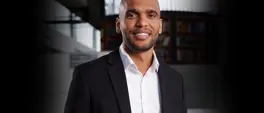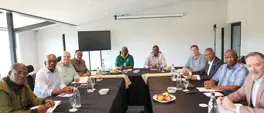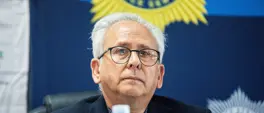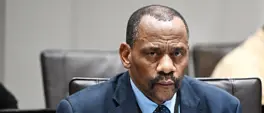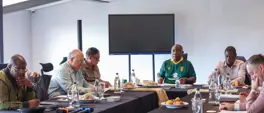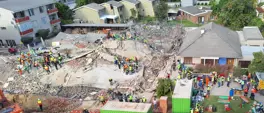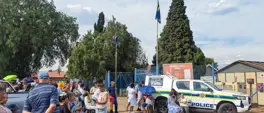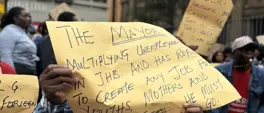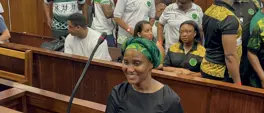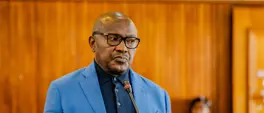'What's the use of voting?' Free State residents tired of empty election promises
Orrin Singh
18 March 2024 | 17:21As part of our nationwide pre-election coverage, EWN traversed through parts of the Free State speaking to residents ahead of the polls.
JOHANNESBURG - As part of our nationwide pre-election coverage, EWN traversed through parts of the Free State speaking to residents ahead of the polls.
QWAQWA
Nestled in a valley, amid the rolling mountain peaks of the Free State, Lesotho and KwaZulu-Natal, the Maluti-a-Phofung Local Municipality is surrounded by outstanding beauty.
But it’s only until you zoom in closer that you realise its beauty is a mere facade for hopelessness.
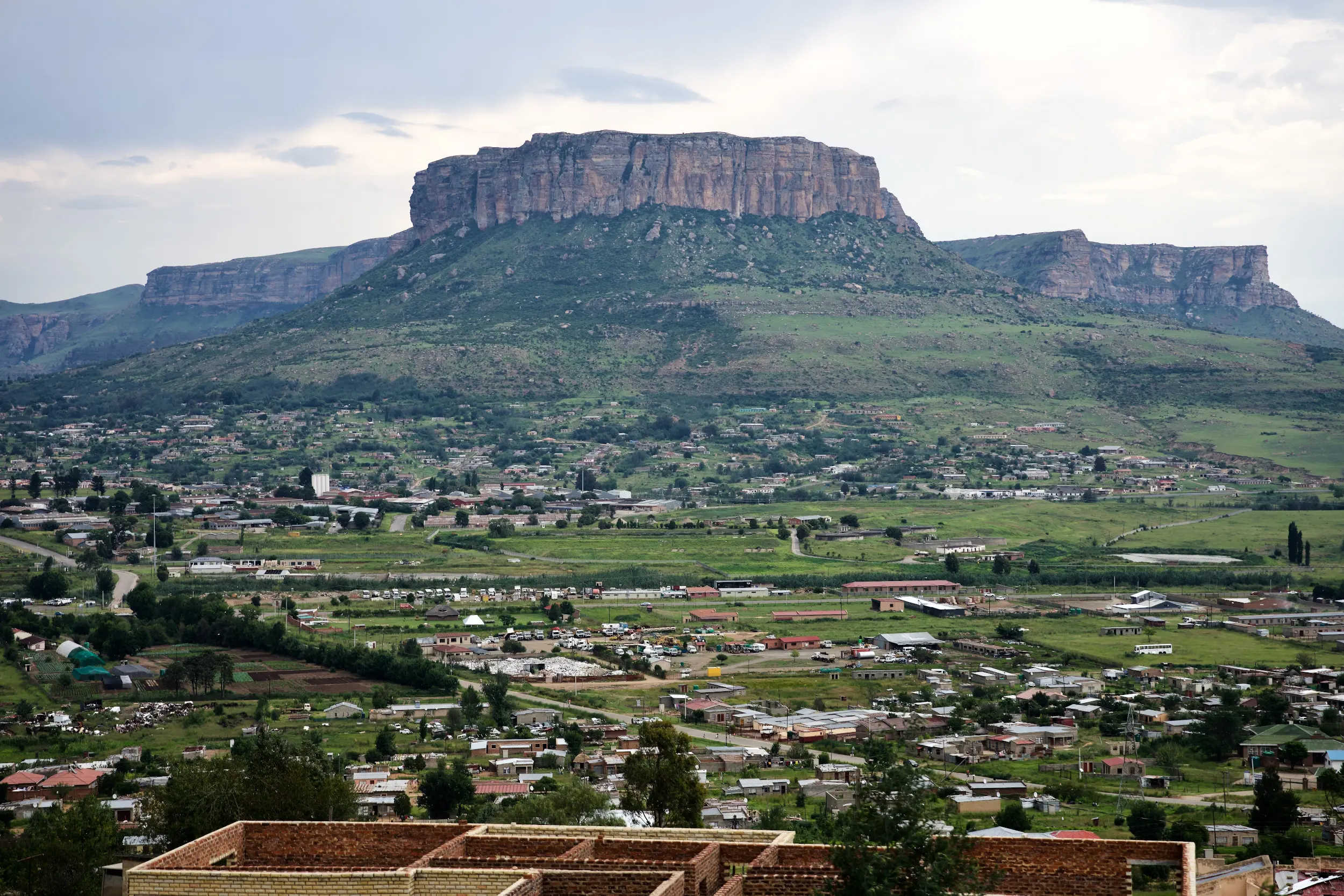
Soaring rates of unemployment, a road network that is in utter disarray, a lack of proper housing and access to water remain a stark reality for thousands of residents in Qwaqwa.
Resting at the foot of the majestic Maloti-Drakensberg mountains, the University of Free State’s Qwaqwa campus is a state-of-the-art facility that has over the course of two decades provided thousands of youth with the opportunities to advance their education.
But in many instances, their qualifications are rendered useless.
Thousands of youth roam the dilapidated streets of Qwaqwa in the Maluti-a-Phofung Local Municipality, drowning their sorrows at local taverns and shebeens, unable to get work and pay back their student loans, all while sleeping on their degrees and diplomas.
Twenty-eight-year-old Vincent Maile holds a diploma in logistics but has been unable to get work in the area.
"Qwaqwa, for me, I see it as a place that is not developing or that has no development for young people actually. You don’t grow in Qwaqwa as a young man or a young woman because there are no opportunities here. There are no development programmes."
It's 10am and Khutsoane Khutsoane sits on a stoep outside his home as he takes long, deep pulls of a cigarette, as if he’s inhaling all his worries.
The 32-year-old says unless you work for the government, there is no work in Qwaqwa.
"The municipality, teachers and nurses - those are people who can say they have jobs. And those are people who were employed way back but for now, Qwaqwa doesn’t have jobs."
But it’s not just unemployment - 30 years into democracy and basic services such as water and electricity are yet to reach residents of Botjhabela - a somewhat forgotten community in the region.
Mapitso Moloi survives on making and selling traditional beer.
"There is no water, roads and the electricity is always off. Mandela said children should go to school, they went but in the end, their qualifications are of no use to them.
Just like dozens of people EWN spoke to, Moloi says she will not be voting and even if she did take to the polls, she would not vote for the African National Congress (ANC), having fallen victim to countless empty promises.
So can Qwaqwa be saved?
Well, at least one politician thinks he is the man for the job.
Controversial leader of the African Content Movement, Hlaudi Motsoeneng, has made major inroads in his hometown of Maluti-a-Phofung - winning two seats in the local council.
But it’s not only Maluti that Motsoeneng is gunning for…
"People of Free State, what they need to do is elect their own son, the son of the soil in the Free State. Just elect Hlaudi to change their lives there - I’m the only one savior for that province."
Amid the endless service delivery issues plaguing this community, Motsoeneng believes securing foreign investment is key to creating employment and delivering services.
He says he is using the national elections as a stepping stone for his main objective - the 2026 local government elections, where he has his eye set on taking over the Maluti-a-Phofung Local Municipality.
MANGAUNG
It's the birthplace of the African National Congress and South Africa's judicial capital and yet, in many instances, it remains a former shadow of itself.
Residents of the Mangaung metropolitan municipality, home to the City of Roses, Bloemfontein, claim the metro is virtually crumbling before their eyes.
A lack of service delivery, mushrooming informal settlements and sewerage run-off outside homes and even schools have left thousands frustrated in an area that once stood as a cornerstone of democracy.
The ANC museum, an iconic landmark, was the subject of a multi-million-rand purchase and refurbishment ahead of the ruling party’s one-hundredth anniversary in 2012.
Now, the former Wesleyan Church building in Waaihoek, Bloemfontein, the venue for the ANC’s founding conference in 1912, lies in ruin.
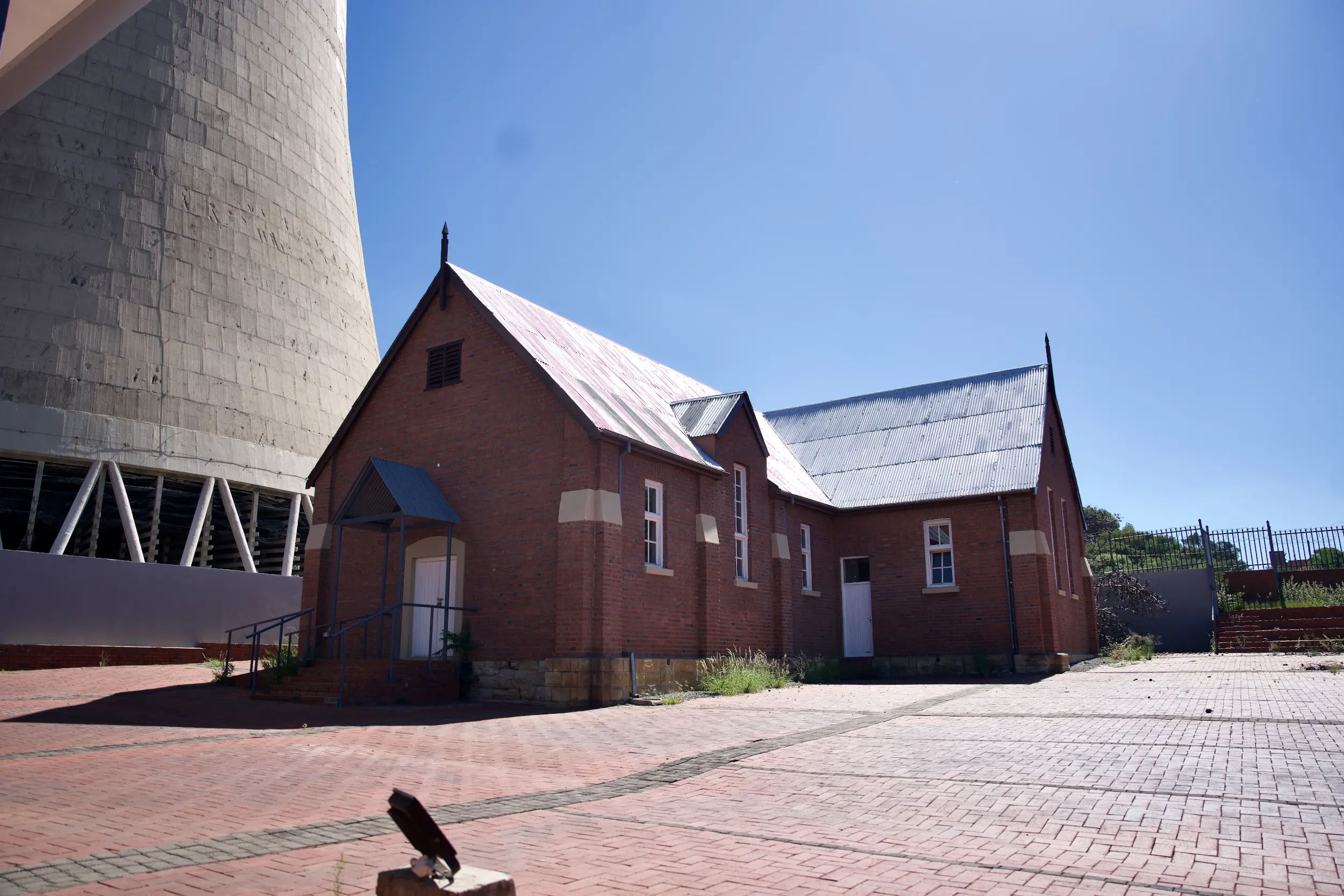
A fallen tree has destroyed the fence surrounding the building as vagrants swarm the street outside.
Oil stains parts of the dilapidated road where dozens of employees of panel beating and mechanical workshops clatter and hammer away in their day-to-day dealings.
The museum itself is even outdated, under the long list of ANC presidents, the face of former President Jacob Zuma remains at the top.
Sitting outside, underneath a tree with his wife and grandson, pensioner Petrus Nyamane, bemoans the democracy they were promised.
"The situation now that I'm a pensioner is really bad, it's just poverty – it's not like before where we used to get support. I have kids at school and even the grant money I get isn’t enough for me to manage putting them through school. When you are over 60 here, it's really tough, you have to fend for yourself."
But it’s not only the residents in the city centre who are fed up.
Just outside Bloemfontein in a township called Grasslands, resident Katlego Siko, speaks to EWN near a pool of stagnant sewerage - a school, prone to flooding, in the foreground.
"It’s a disaster, there’s no service delivery, there’s no job opportunities, especially among the youth. There's literally nothing happening in Mangaung, it’s just a dirty city, as you can see."
Another resident of Mangaung, 60-year-old Sam Peter Roberts, says he will definitely be voting as he believes the only way to get services is to elect a strong opposition to the ANC.
"As you can see, the potholes are worse, don’t remove the dirt. The crime is worse than apartheid. It’s worse because the people come in and take over. Our government let us down."
Peters says he doesn’t rate the Democratic Alliance (DA) or Economic Freedom Fighters (EFF) worthy of his vote as an opposition, claiming he will decide who to vote for on the day of elections.
BOTSHABELO
Tens of thousands of tin shacks glisten under the harsh Free State sun among the dusty plains of Botshabelo, just 50 kilometers east of Bloemfontein.
Stretched as far as the eye can see, it paints a grim picture of the housing crisis the country faces 30 years into democracy.
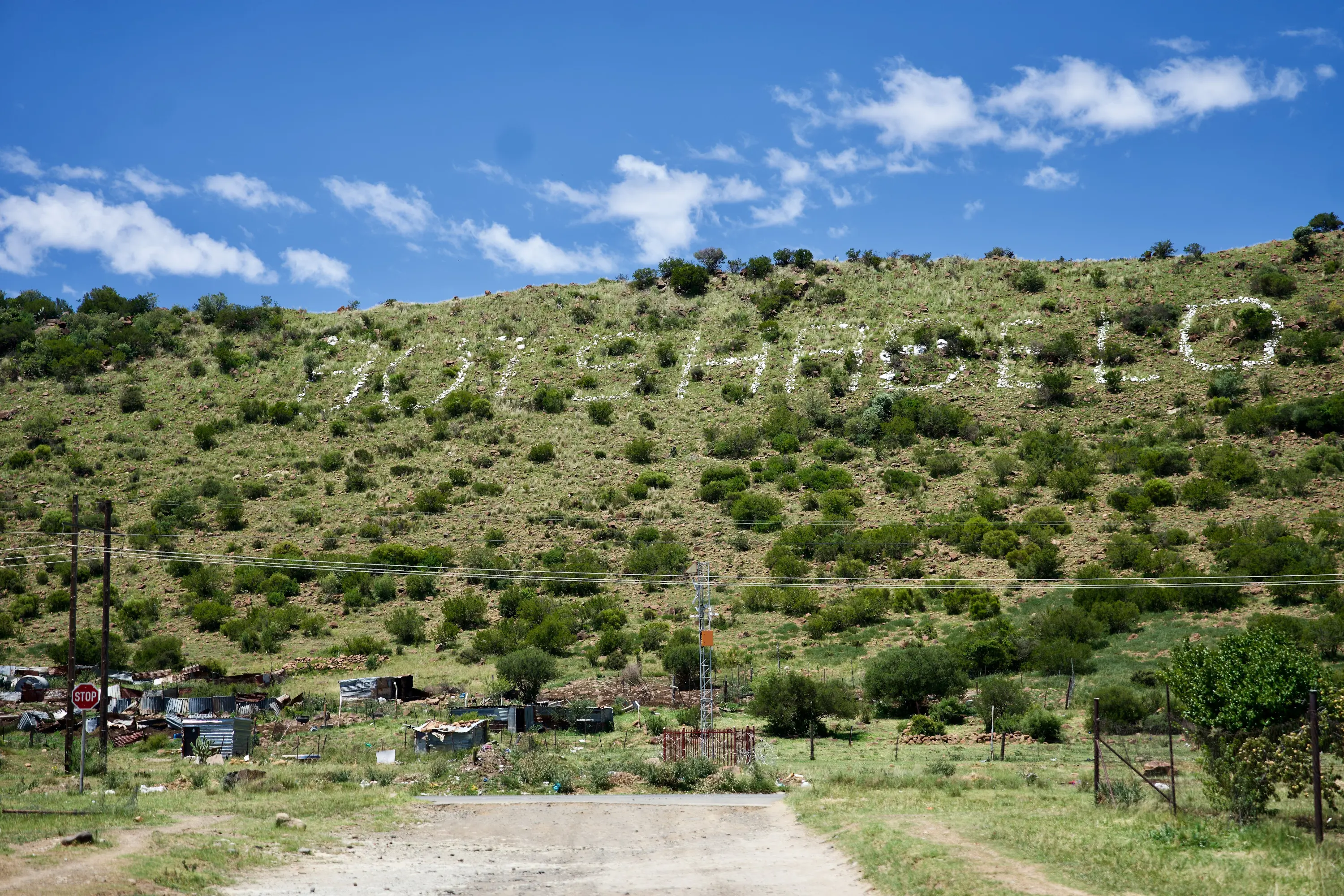
The village is the birthplace of ANC secretary-general Fikile Mbalula, but very little has changed since Mbaks left the region decades ago.
Situated a mere 45 minutes from SA's judicial capital, Bloemfontein, otherwise known as the City of Roses, there is nothing rosy about Botshabelo.
In fact, it’s the polar opposite of roses, as residents are still struggling with pit toilets and waste collection.
Resident Nthabiseng Mathinya says government has failed them and she won't be voting.
"They come after two weeks sometimes. The buckets are already full and we don’t know where to empty them out. From there, because of that, we resort to digging holes in our yards and pour it in there or we dump it over there by that big hole."
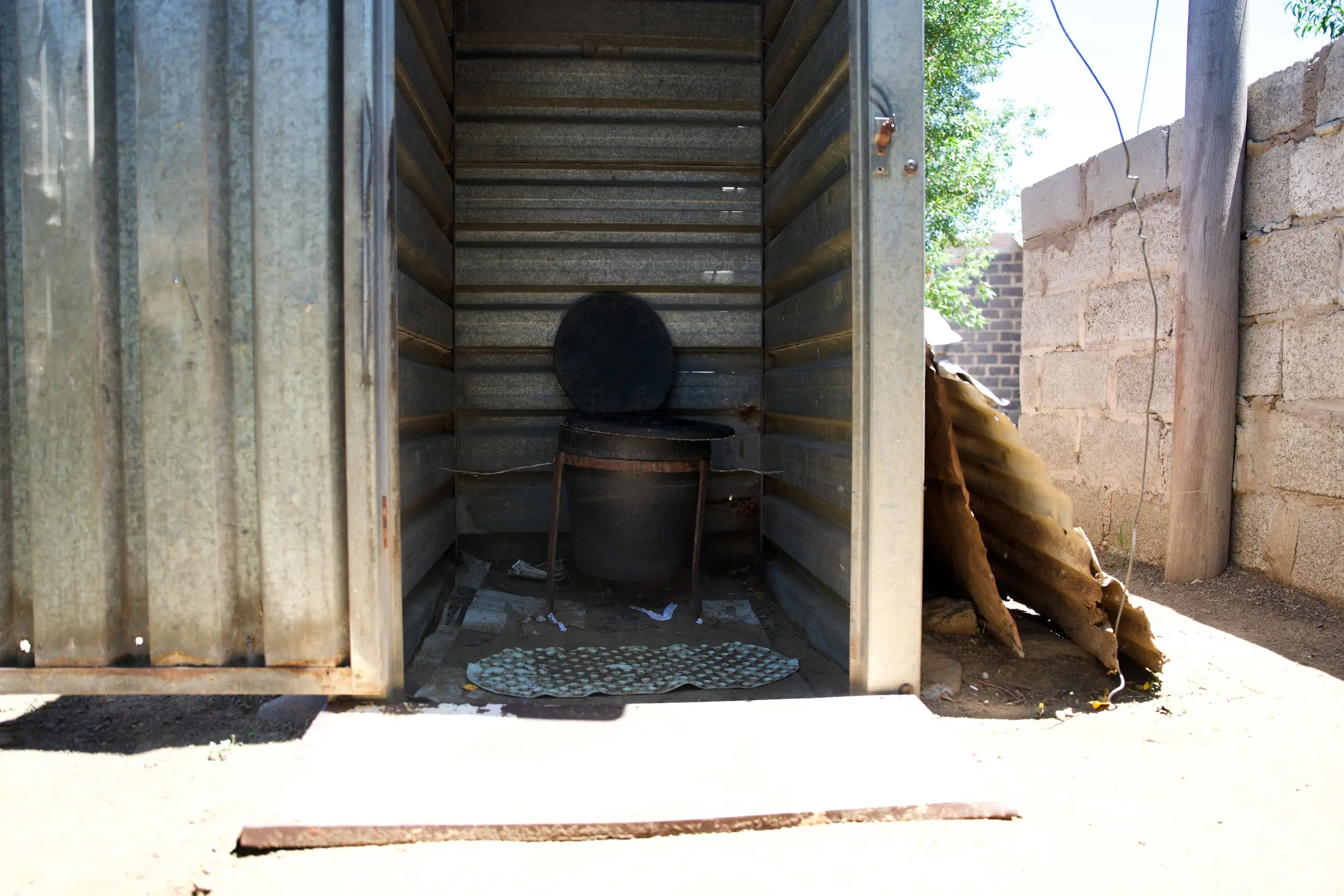
Small business owner, Melekeng Kamogo, says the entire hillside has been transformed into a shanty town.
"People were promised that they'd be given a piece of land. So, I don't know what's happening. Others have been given the land, others are occupying the land illegally. It's a mess."
Some residents have bemoaned the recent R50 million upgrade of the Botshabelo Industrial Park, suggesting government could have used that money for housing.
VREDE
Trying to rescue a dairy farm, milked for more than R300 million in a state capture corruption scandal is no easy task.
But for 33-year-old Mangweta Maila, it’s a matter of taking the bull by the horns.
Last year, Maila was appointed as the executive farm manager to oversee operations at the former Gupta-linked Estina Dairy Farm in the Free State.
In 2022, the farm was handed back to 65 local beneficiaries and renamed the Phumelela Integrated Farming Trust.
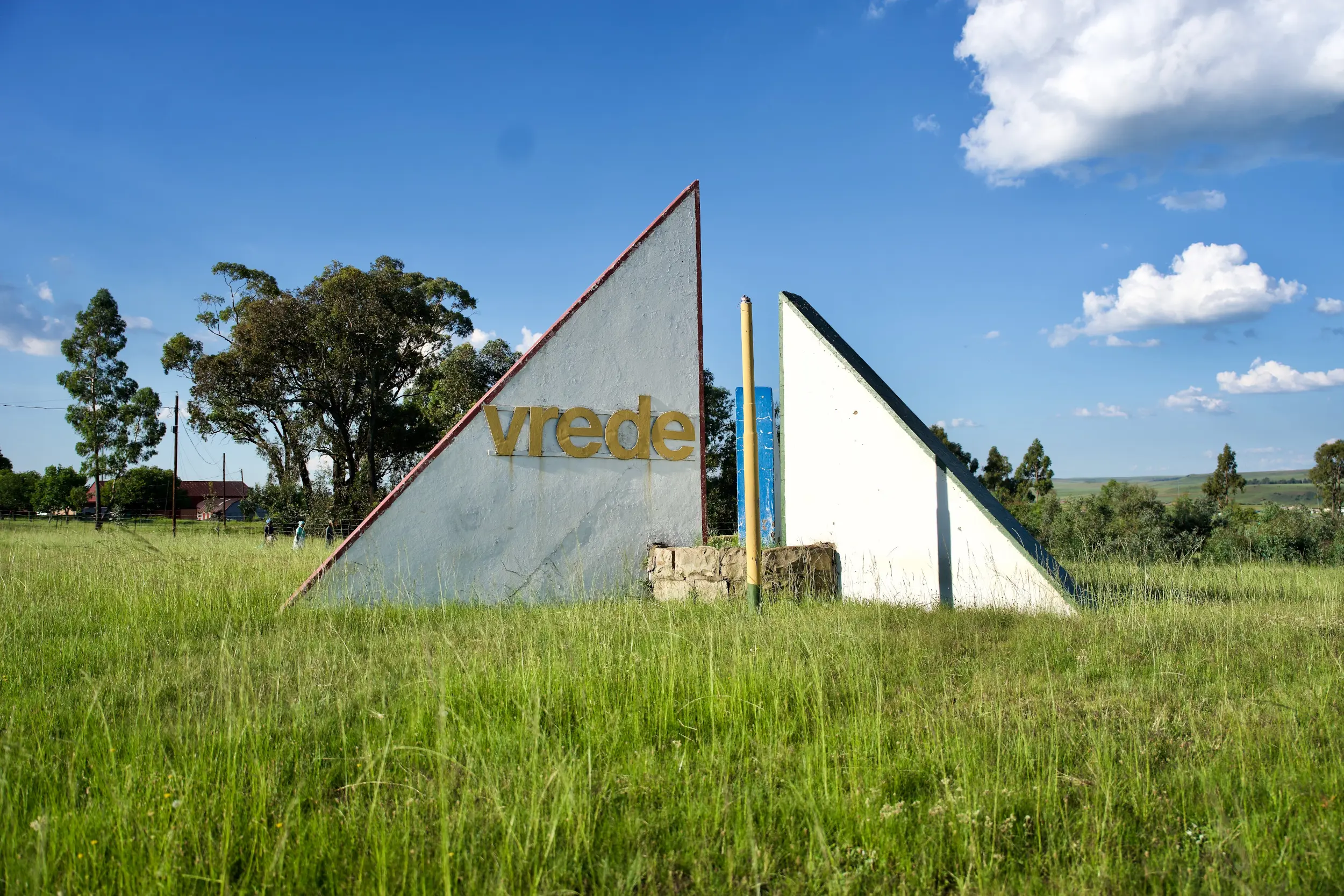
When Mangweta Maila took up the post as farm manager at the dairy farm, he knew it would be a challenge.
But nothing could prepare him for the mammoth task he encountered when he arrived on the farm.
Disease-ridden, old and unproductive cows, no record system, feeding plans and a management system that was virtually non-existent, were only some of the issues Maila faced.
"I had to start from scratch, try and sort out animals, group them into their groups, make sure animals were pregnant and try and reduce the mortality because animals were dying."
Amid all of this, Maila’s main task was to turn the tides on production, something he claims to have done, albeit small gains.
"When I got here they were doing 1,000/1,200 litres per day. Now we are currently doing 4,000 litres a day.
Maila holds a degree in crop production from the University of Tshwane and a diploma in mix farming from the University of Potchefstroom.
He oversees 32 employees and 202 cows on the farm.
Last year, Maila gave the 65 beneficiaries of the farm a R1,000 food voucher.
That's all they received, 14 years after the R250 million state empowerment initiative was launched.
And while the Free State government handed the project back to the rightful owners in 2022, allegations of corruption and mismanagement soon followed.
An elected board, comprising six of the beneficiaries, to oversee the management of the former Estina farm, are currently facing criminal charges of animal cruelty following an inspection of animals on the farm by the NSPCA last year.
EWN understands that the majority of the cows the NSPCA found in poor health had been the subject of a questionable R4 million purchase.
According to board members, their former chairperson, Ephraim Dlamini, purchased 176 cows from a local farmer without consulting his fellow board members.
Board member, David Khumalo, says the cows purchased by Dlamini were not worth the cash.
He says of the 176 cows purchased, approximately 50 were in decent health.
"They were not in good condition that’s why the SPCA came there, it was for those cows that Dlamini bought."
He says Dlamini did not follow proper protocols of consulting the committee or vetting the animals before purchase.
"Most of those cows produce maybe seven litres per day and you can’t buy a cow that produces seven litres a day, you need to get the proper records before you buy."
Dlamini declined to comment but confirmed he was no longer part of the board.
And while an animal cruelty case against the six committee members, as well as the former farm manager, continues to play out in the Vrede Magistrates Court, the family of slain whistleblower, Philemon Ngwenya, have yet to receive any form of justice.
Ngwenya, the late spokesperson for the beneficiaries of the Free State Dairy Farm project, was found murdered in his shack just outside Vrede in 2018.
He had been vocal in the media about the corruption surrounding the farm.
His daughter, Phindile, says her life in Vrede is one of continuous pain and suffering.
"I don’t know what kind of animals people are, killing a person like they’re killing a chicken."
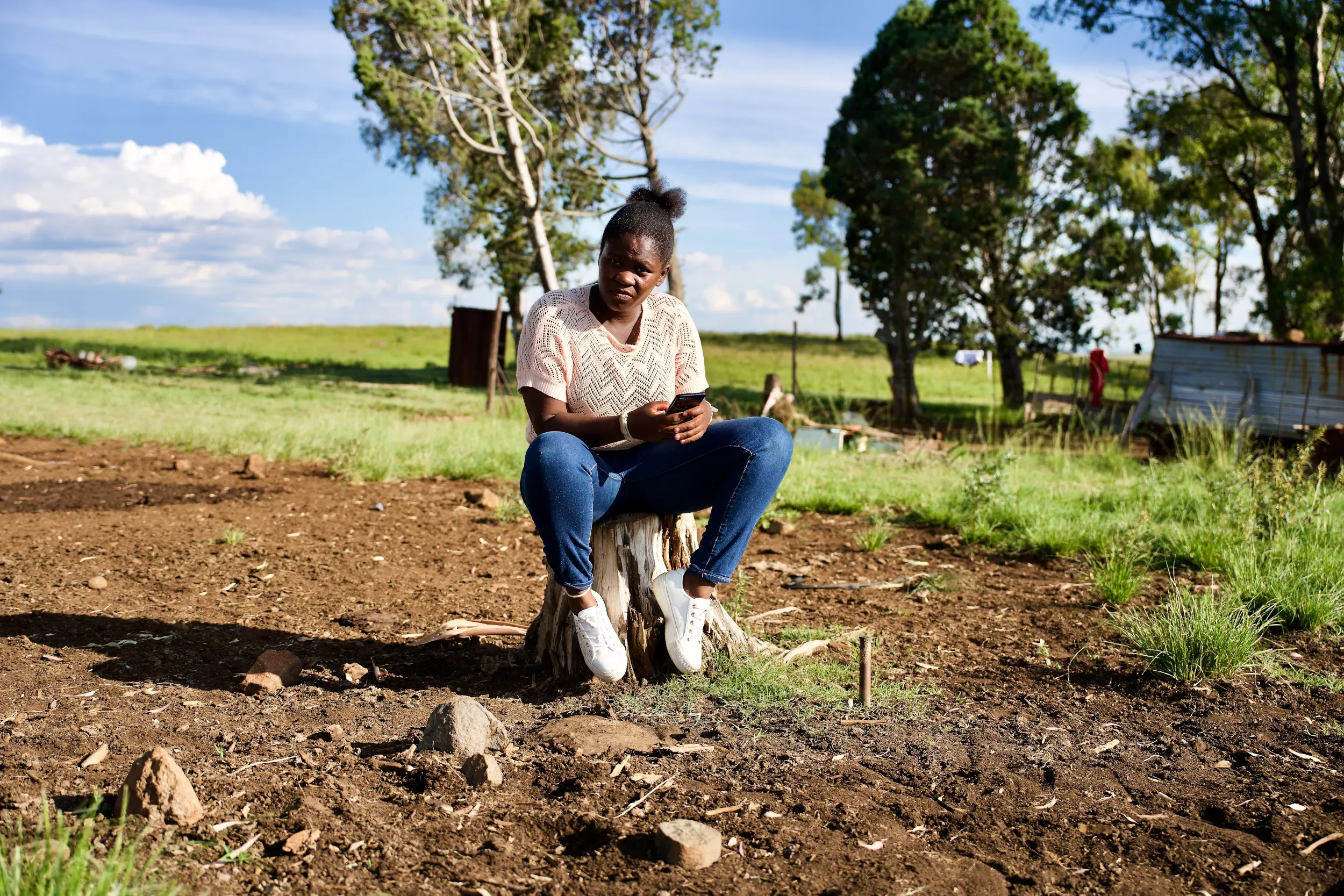
Despite two men being arrested in connection with her father’s murder, Phindile says she has lost faith in not only the justice system but the entire government.
"Never trust everyone. My father had trust in everyone, what did that get him? He got killed easily and his death has too many questions, too many questions, no answers, no justice, while we are still out here suffering."
She cautioned South Africans to be wise when they cast their votes and not be lured into the false promises of a better future.
ODENDAALSRUS
Many residents of the community of Kutlwanong, just outside Odendaalsrus in the Free State are not yet ready to forgive or forget what former Free State premier, Ace Magashule, put them through.
In 2014, the poverty-stricken township was meant to benefit from a R255 million project to access and remove hazardous asbestos roofs from their homes.
However, the State alleges the money was squandered by Magashule, controversial businessman, Edwin Sodi, and other Free State officials.
Magashule has both allies and enemies in the township of Kutlwanong.
Many cringe at the sound of his name, while others claim his new political outfit, the African Congress for Transformation, is a simple reminder of what the latter is not about.
Instead of transforming the lives of thousands of some of the poorest of families in Kutlwanong, Magashule and his cronies, including tainted businessman, Edwin Sodi, allegedly squandered close to R250 million meant for the betterment of the community.
But if living in the pain of the past is not enough, their current situation is none the better.
Puddles of sewerage, sidewalks turned into dumping grounds, a clinic which has no medicine, a town hall with grass up to the windows and gravel roads so treacherous that ambulances cannot even reach patients, with the community having to transport the ill in wheelbarrows to reach emergency vehicles.
These are just a few issues, over and above a common provincial problem of unemployment, pit toilets, and a lack of access to water and electricity.
Standing outside the town hall, a group of agitated men debate.
At the centre of their circle stands a tall slender figure with a notebook and pen.
Michael Semoko represents unemployed men in the township, many of them youth.
He relays their frustrations.
"We are losing hope in terms of voting because you can understand, now it’s almost 30 years of democratic elections but we are benefiting nothing about that democracy they are talking about."
Off the beaten path, in a nearby community, there are no tar roads, electricity, or running water.
A 24-year-old man flags down EWN, eager to speak, but hesitant to divulge his name.
He says if his education has taught him one thing, it is to think for himself and not be swayed by sweet-talking politicians.
"We fetch water there, with wheelbarrows. We don’t even have taps. Look at these houses, they don’t even have electricity. They are saying they will give us electricity. Ace Magashule came here with his ACT and promised us, he’s saying he is going to provide these things. He came from the ANC, he was still promising us these things when he was with ANC, so now he formed his own party. What makes us think he will do these things?"
He says the notion of voting while living in such conditions is nothing more than a joke.
"What’s the use of voting? Why do we have to vote for something that is not going to happen? These people promise you things, they tell you what you want to hear. They know we don’t have roads and toilets, then we go vote for them, they get money and then it’s gone. Look at this area. It looks like a rural area and yet it’s a township."
Magashule, Sodi and 14 others will stand trial in April, being charged with fraud, corruption, and money laundering regarding the squandered funds.
Get the whole picture 💡
Take a look at the topic timeline for all related articles.


